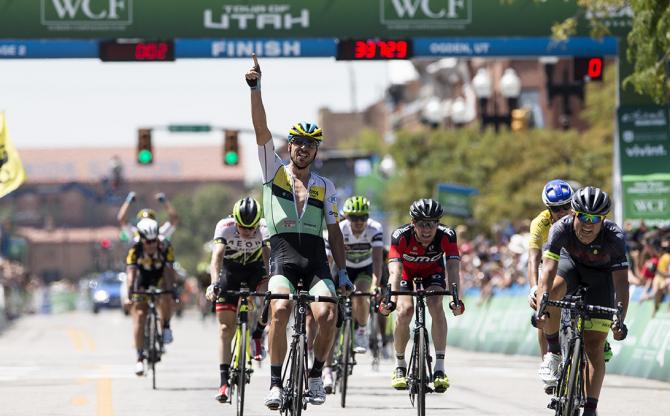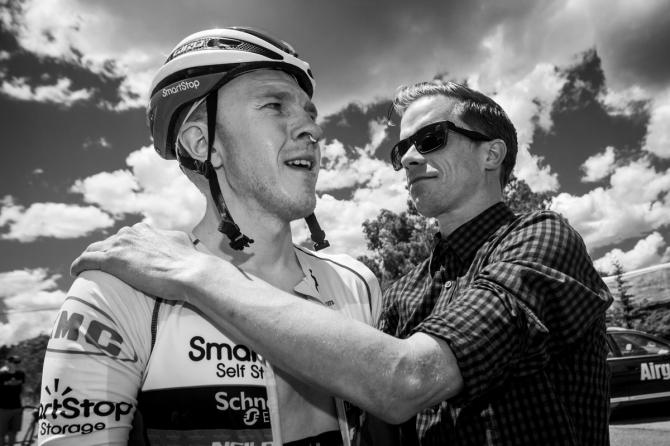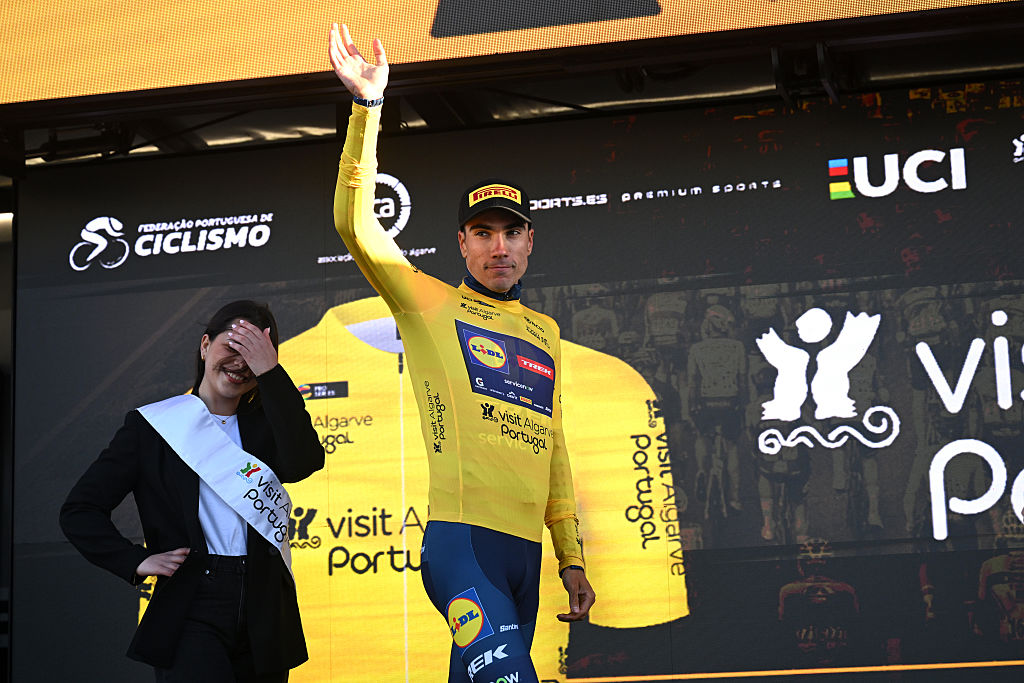Former SmartStop riders still owed nearly half of 2015 contracts
Team SmartStop owner confirms team fell short of covering salaries for riders and staff
The latest race content, interviews, features, reviews and expert buying guides, direct to your inbox!
You are now subscribed
Your newsletter sign-up was successful
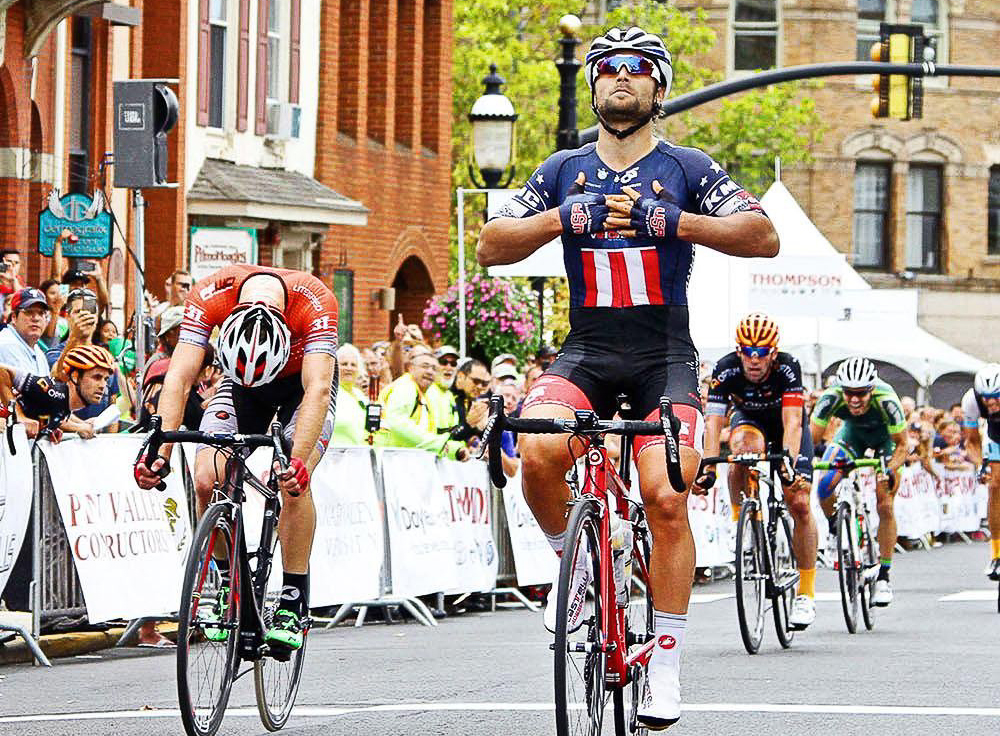
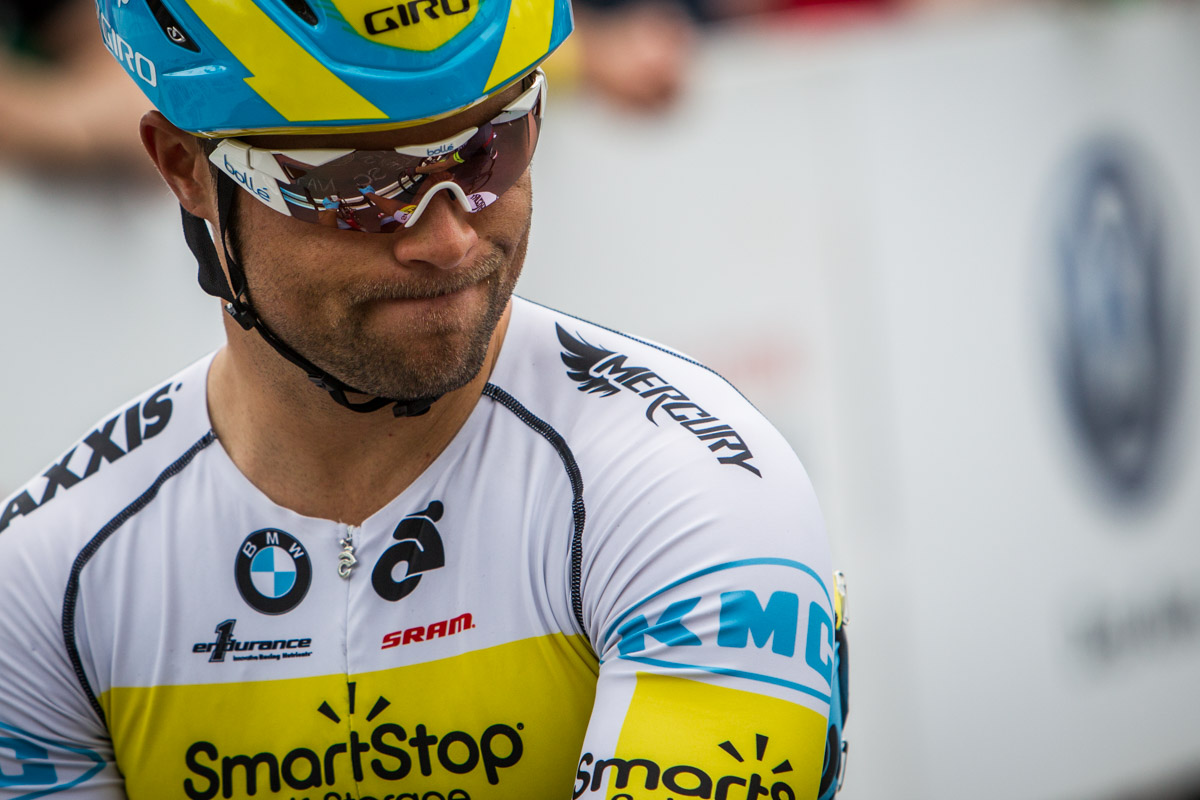
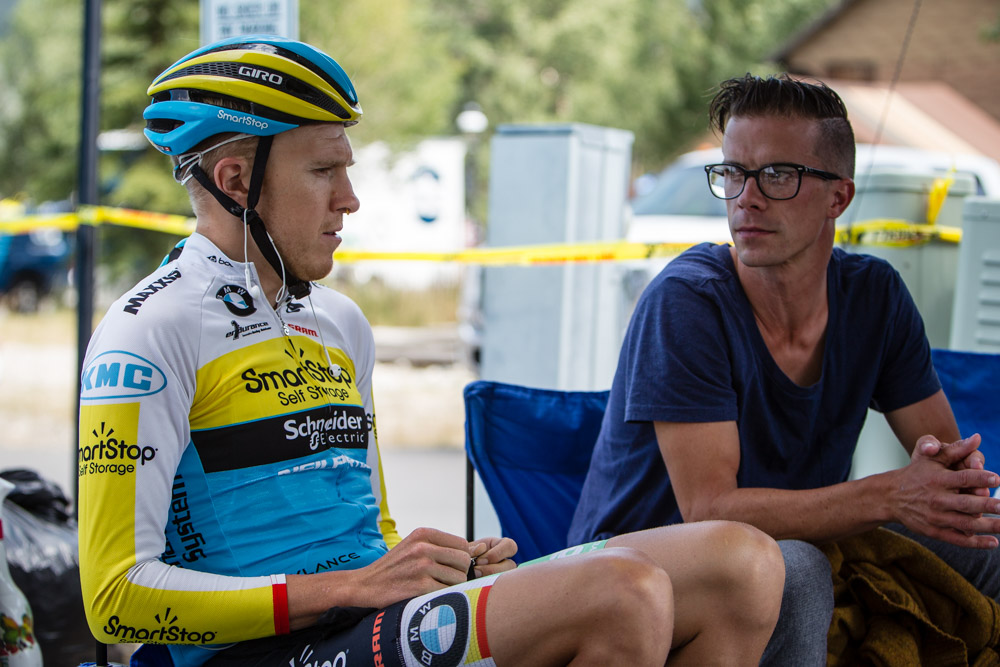
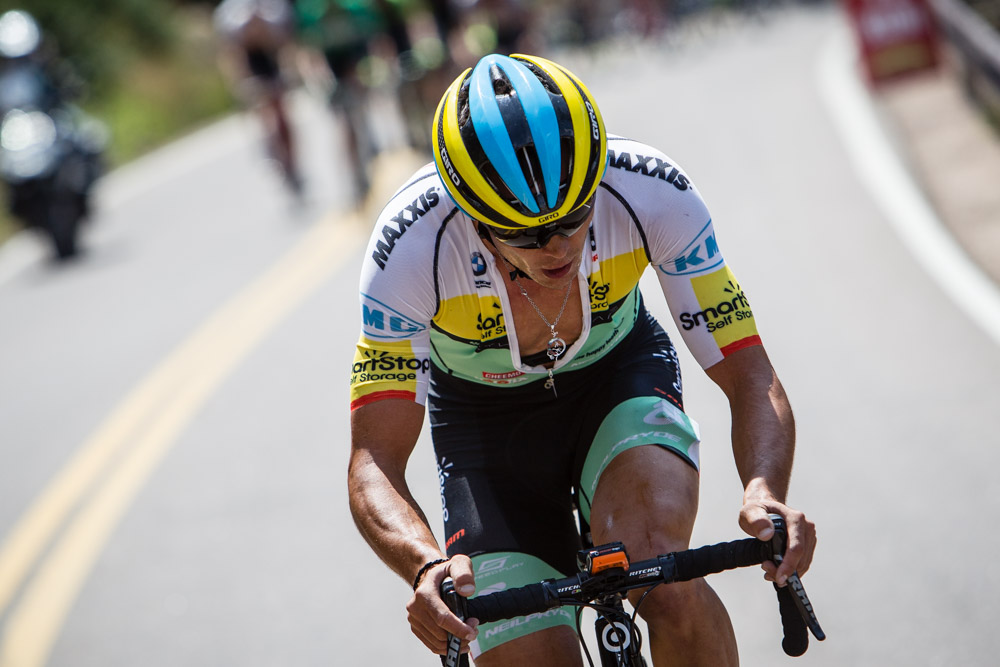
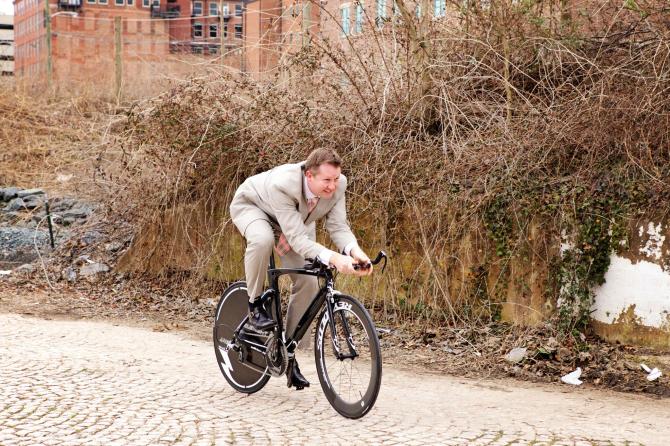
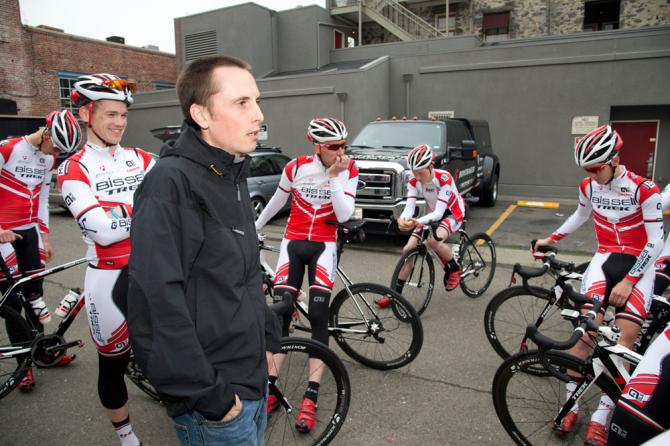
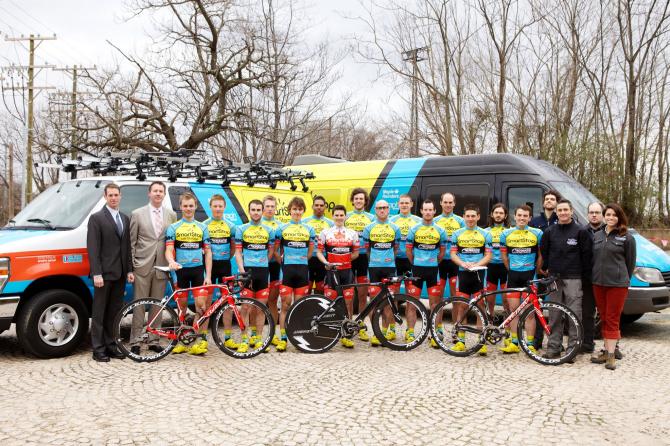
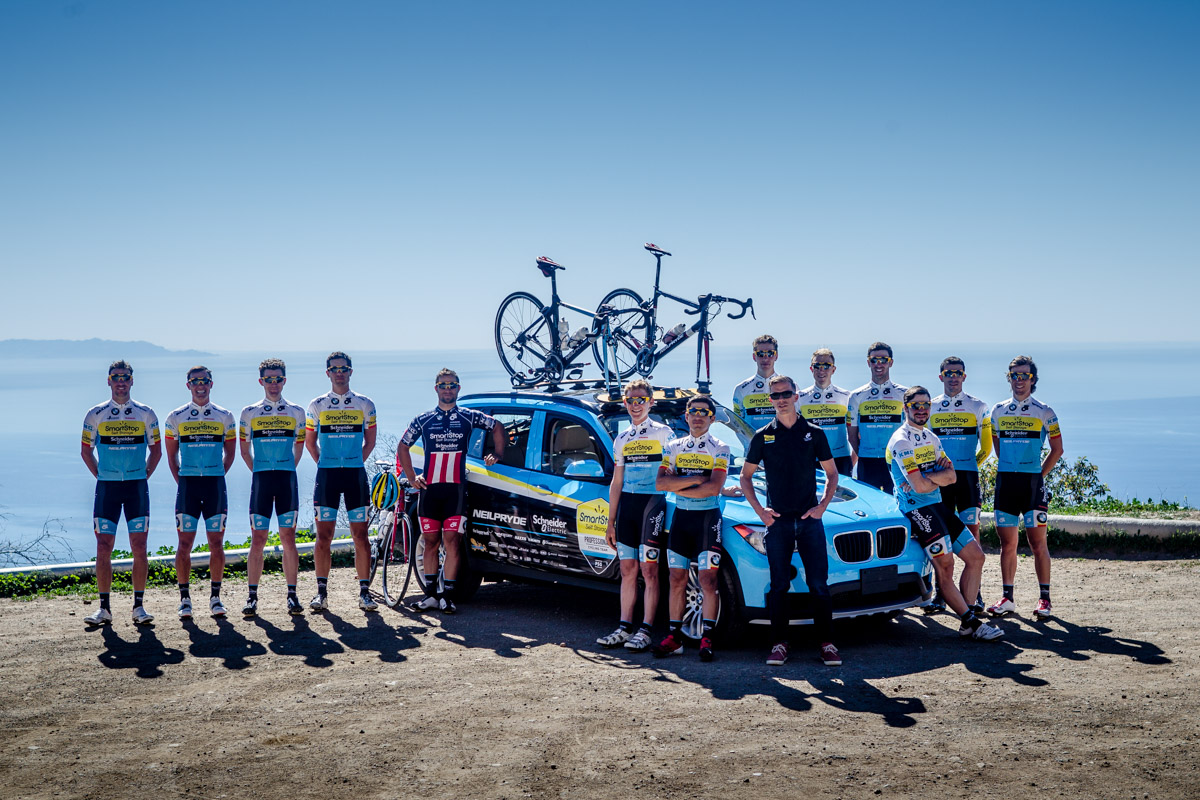
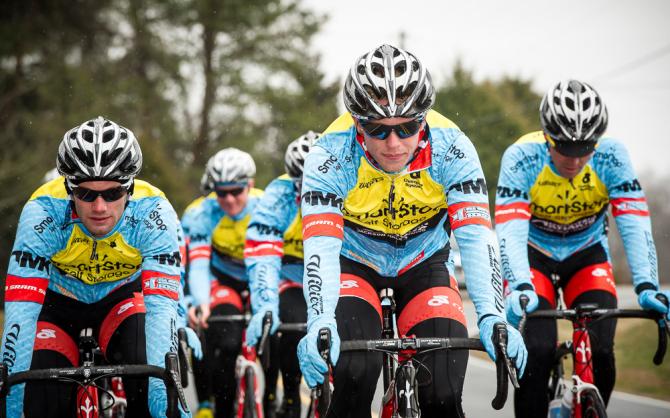
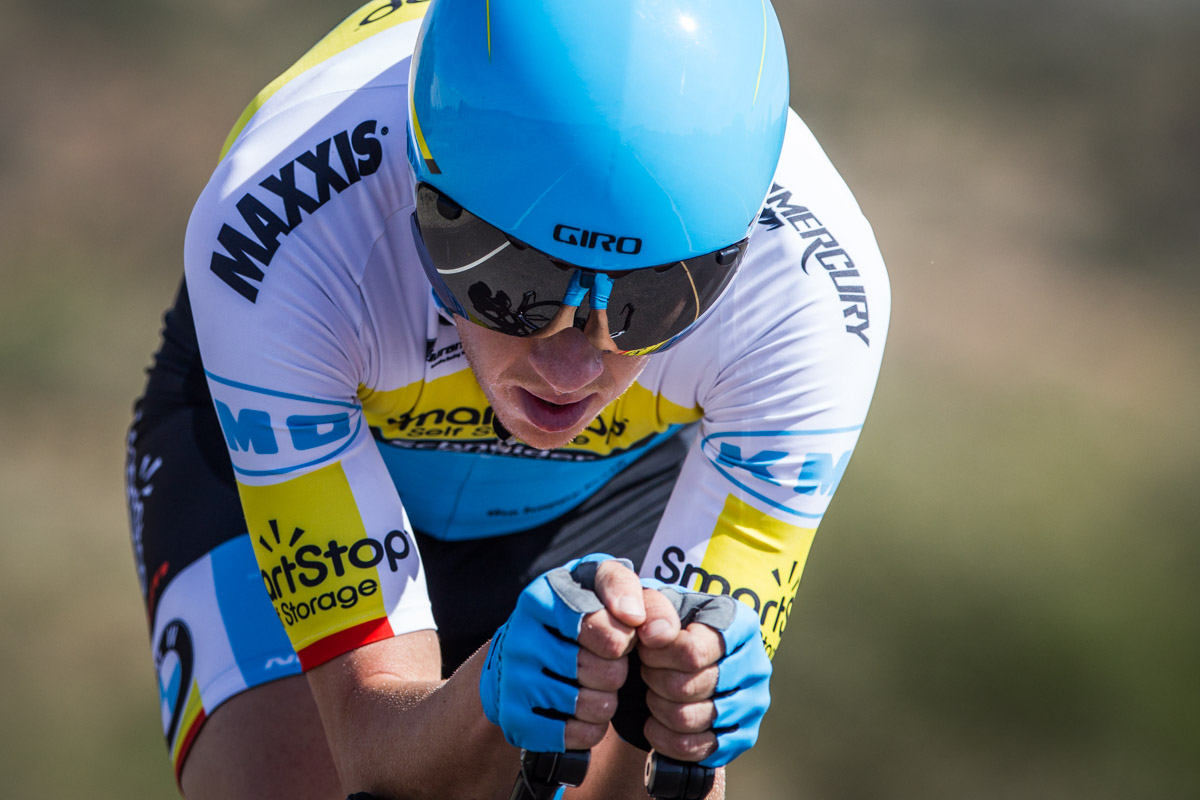
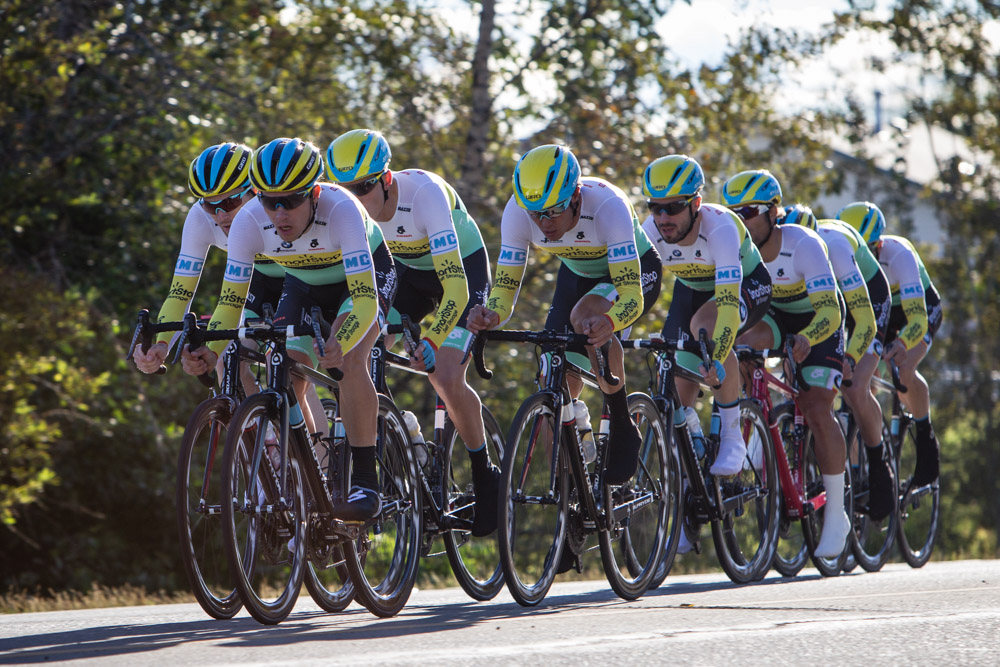
Team SmartStop's rise from criterium squad to the upper echelons of US domestic road racing was swift and thorough, but the team's collapse was even more abrupt after the self-storage company that had been title sponsor since 2013 was sold and the new owners declined to renew the sponsorship.
Now former Team SmartStop riders have told Cyclingnews that Premier Sports Group, which owned and managed the Continental team, stopped regular contract payments just over halfway through last year, leaving the riders struggling to recoup the money they're owed. Premier Sports Group manager and co-owner Jamie Bennett confirmed to Cyclingnews that the management company owes riders and staff the back pay, saying that he is continuing to work on making everyone whole.
“At the end of the day we're going to get each one of the riders about 95 per cent,” Bennett said. “Between the bond money and money we have coming in from some final liquidations on stuff, we'll get everybody 95 per cent within the next 45 days, and then we'll have a little bit to clean up after that.”
Bennett said the problems began when SmartStop didn't renew its sponsorship for 2016, and he likened the team's demise to a retreating army.
“We're trying to grab together the last remaining pieces and liquidate them and make good on our commitments. We're still trying to do that,” he said. “Unfortunately, the timing hasn't gone well. Had we had a sponsorship renewal, we wouldn't be having any of these problems. That's the difference. Nobody really has a good exit plan if they don't get a renewal. And I think we're a case in point there.”
USA Cycling Technical Director Chuck Hodge, who took over his current position in November, told Cyclingnews he has received several inquiries from riders and staff about accessing the team's bank guarantee, money that teams are required to put in an escrow account to cover unpaid financial obligations in these situations. Hodge said he's currently working with all the involved parties, including Bennett, to figure out how much everyone is owed so that he can help release the bank guarantee funds as soon as possible.
Thirteen of the 16 riders and staff that Cyclingnews contacted responded and confirmed they are owed back pay from the team, ranging from a couple thousand dollars to more than $25,000. Salaries on the team varied greatly, and some riders were on 10-month contracts, which accounts for the wide-ranging levels of money owed. The last regular payment came in July, most said, with small amounts coming in sporadically since then as the team liquidated left-over equipment.
The latest race content, interviews, features, reviews and expert buying guides, direct to your inbox!
Further complicating the matter is the fact that the team's bank guarantee is well short of the 15 per cent of salary obligations that the rules require. When teams apply for a licence, they must submit their salary obligations and budget to USA Cycling, which forwards the financial statement to an independent auditor for review.
After a successful 2014 season, Team SmartStop's salary obligations increased dramatically for 2015, but the bank guarantee didn't keep pace with the new commitments. Hodge said USA Cycling's records indicate the auditor informed Premier Sports Group that it needed to deposit more funds in the 2015 escrow account, but that never happened and apparently no one followed up to make sure it had.
Team's financial woes were a poorly kept secret
Rumors of the team's financial problems have been circulating for some time, although riders were caught in a circumstance of not wanting to go public for fear of alienating the team owners and killing their chances of getting paid. And although they didn't want to race without getting paid, they needed to keep competing so they could get the results and make the connections with other team managers that would lead to a contract for the following season.
When payments stopped coming in July, they all knew something was up, and there were other signs as well, like a lack of support on the road for August's big UCI races in Utah and Colorado.
“We had the team van in Utah and two team cars,” said Travis McCabe, the 2014 National Racing Calendar individual rankings winner. “We were told that we couldn't afford the bus and we couldn't afford another van, so the Tour of Utah supplied us with one.”
But things changed when Jure Kocjan won stage 2 and then earned the race leader's yellow jersey during stage 4.
“After he was in yellow, all of the sudden Jamie flew out – and again we had been told that we didn't have any money – but Jamie flew out, [Marketing Director Mike] Roeklein flew out and [General Manager] Omer Kem flew out,” McCabe said. “The bus was magically there and we had a BMW i8. And then as soon as Jure was out of yellow everything pretty much disappeared and everyone was gone.”
The financial troubles showed themselves again in Colorado at the USA Pro Challenge when the team's RV broke down on a long transfer between stages.
“We were told to just leave it there at an abandoned gas station, and it ended up getting impounded,” McCabe said. “It's somewhere between Steamboat Springs and, I don't know, Golden or Boulder. There's apparently equipment and supplies on it that we could sell, but no one wants to pick it up because we'd probably have to pay the impound fee out of our own pockets. So at that point we had the van, the tent set up and the two vans that the race supplied us.”
Another sign of trouble came at September's Thompson Doylestown Criterium, a race that Eric Marcotte, the 2014 US pro road race champion and 2015 US pro criterium champion, paid his own way to compete in. Marcotte took the win there, and when he crossed the line in the stars-and-stripes kit of the national champion he went out of his way to cover up the SmartStop logo emblazoned across his chest.
“I was totally racing 100 per cent to win that race so I could do that – 100 per cent,” Marcotte said. “That was the whole intention of why I wanted to win.”
It was, and continues to be, a messy situation that at least one person who worked with Premier Sports Group said can, quite ironically, be traced back to Team SmartStop's accomplishments on the road.
Jure Kocjan (Smartstop) wins stage 2 in the 2015 Tour of Utah. (Jonathan Devich/EpicImages.us)
Victims of their own success
Last season was the ninth year for the team run by Premier Sports Group. The team began racing as Time Factory Development in 2007 with Bennett, Pat Raines, who left the program in 2014, and Erik Saunders, who left in 2009, at the helm. Time, which focused heavily on criteriums, stepped up to the UCI Continental level in 2008 and added Mt. Khakis as the title sponsor the next year. The team raced as Team Mountain Khakis p/b Jittery Joe’s in 2010, then stepped down from the Continental level the next season.
The team added SmartStop as a secondary sponsor in 2012 and returned to the Continental level, where they continued to be a force on the criterium circuits.
Premier Sports Group Assets Director Joe Carpisassi said the management team at that time was basically just a bunch of volunteers who ran the program on the very edge of what they were able to accomplish. He said for the first five or six years of the program Bennett probably put up 95 per cent of the team's operating budget out of his own pocket.
But an invitation to the Tour of Alberta at the end of the 2013 season piqued Bennett's interest in the more high-profile North American stage races, and Premier Sports Group shifted the team's focus toward stage racing the following year, adding SmartStop as a title sponsor and bringing former racer Mike Creed on board with instructions to develop a new roster.
Under Creed's guidance and an increased commitment from the title sponsor, Team SmartStop climbed to the top of the US domestic peloton in 2014, their first year as a serious stage racing outfit. Marcotte claimed the US pro road race championship in 2014 ahead of McCabe to pull off an impressive SmartStop one-two. McCabe went on to win the NRC series that year.
Other highlights for Team SmartStop over the past two seasons included stage wins and several days in yellow at the Tour of Utah; overall victory and stage wins at the Grand Prix Saguenay; wins at Bucks County Classic and Winston-Salem Classic; and an overall win this year at the Tour of the Gila by Rob Britton, who also placed third overall at the USA Pro Challenge in August.
Premier Sports Group ventured into women's cycling last season, adding the BMW-Happy Tooth Dental UCI women's team to their line up. That team also folded at the end of last season, although Kem put together his own women's elite UCI team and a men's team for 2016, both of which are sponsored by Cylance, a Silicon Valley cyber-security firm.
“The year we won Nationals we expanded because we kind of had our first legitimate title sponsor, and that's pretty much where our payroll came from when we won Nationals,” Carpisassi said. “So I think Jamie's thinking was, 'Holy crap, we won Nationals, we're getting ready to win the NRC and the UCI America Tour.' His assumption was that he would be able to parlay that into a significant increase in our budget. I think what shaped that opinion was that he brought on a full-time marketing manager and full time general manager who were telling him the same thing.”
At that point Bennet and the management team sat down and estimated what they thought they could bring in for sponsorship and what they could afford as payroll. Carpisassi believes Bennett got overzealous in what he believed the team could accomplish in the world of domestic cycling.
“Not only were we pushing the envelope of our budget, there were a few things that Jamie personally wanted to add in there, so we were kind of doomed from the start,” Carpisassi said. “The other half of that was more or less the affinity and appreciation that we had for our riders. We had done everything that we had done with a really small payroll, you know, guys making 20 per cent or 30 per cent of what they were worth.
“I think on a personal level Jamie wanted to compensate them probably beyond what was reasonable to be able to compensate them,” Carpisassi said. “We're talking about our top riders making maybe three or four times what they made the previous year. And just nobody wanted to say no to them.”
Unfortunately for everyone involved, the 2014 success didn't lead to a significant increase in sponsorship for the next season, even with the new management team that had been brought aboard. Carpisassi commented dryly that a quick look at the books would show that the national championship and NRC success led to a larger allocation of water bottles in 2015, but not much else.
“I think the salary increases were made on two things: Jamie Bennett's willingness to patch holes personally, financially, which he had been doing for a long time, and an estimation on what our general manager and marketing director thought that they could bring in in a year. I don't think either were calculated conservatively enough, obviously.”
Bennett admitted that the team committed to pay the 2015 riders well in order to keep the team together, gambling that their success the year before would pay off with increased sponsor support.
“I thought for sure keeping our team together and being able to maintain the quality of the results that we got, for sure there's got to be a sponsor out there for our team,” Bennett said. “How could there not be with the success that we had from last year and the year before? To me that's what has been so disillusioning. We've tried our hardest. The riders have tried their hardest. But the reality is, there wasn't anybody to make the team. We couldn't rub two sticks together and make fire. We couldn't make it happen despite our successes.”
Although Bennett told Cyclingnews that he believes Premier Sports Group will be able to gather enough funds to bring riders up to 95 per cent of their 2015 contracts, Carpisassi, who said he has handled the team's banking for several years, put the figure riders would get at 75-80 per cent. The riders themselves have an even more pessimistic view of what they will eventually collect.
Rob Britton and Mike Creed celebrate after Britton won the 2015 Tour of the Gila. (Jonathan Devich/EpicImages.us)
Hard feelings about missed sponsorship opportunities
Furthering the frustration is a belief among riders that Kem and Roeklein used their positions with Premier Sports Group to build a relationship with Cylance, which joined Team SmartStop as a secondary sponsor this year at the Tour of Utah, but then steered the company toward title sponsorship of Kem's new teams rather than toward taking over title sponsorship of the Premier Sports Group program.
Kem disputed this accusation, however, telling Cyclingnews that he already had rosters and sponsors in place before Cylance decided in late October to sign on as title sponsor of his teams – nearly two months after Premier's Team SmartStop had folded and Creed announced the bad news on Twitter during the Tour of Alberta in early September.
Both Kem and Roeklein said they are owed back pay from Premier Sports Group as well, and Kem was also saddled with debt on his own management company's credit card, which he said he used to help cover Team SmartStop expenses through the end of the season.
“I was stuck in the middle and it was easy to be angry at me as I had paid [the team] in the months prior,” Kem said. “My biggest regret is that I wasn't honest with them right away because I was afraid the [Premier Sports Group] owners would get mad at me and walk away completely. They never ended up paying anyone, so my attempt at keeping them engaged was a waste, and it's something I think about every day. It's also why if I was going to stay in cycling I had to own the teams. That way I could make sure that everyone got paid.”
Asked about the riders' accusations against Kem and Roeklein, Bennett said he didn't want to get into a blame game or naming names, but he did say he wasn't happy with “the way things went down.”
“Just based on the investment that I made in those particular individual salaries, it's very disappointing to see Cylance not go with us,” Bennett said. “I don't know the particulars of it; I've been too busy trying to focus on my day job so I can put some money back into getting these guys paid, quite honestly. I've put my head into trying to figure out what's the quickest way I can make money so I can get this obligation off my chest, off my shoulders, so I haven't put a whole lot of negative energy into it. But I've read just enough press releases to feel like it is disappointing that people I invested in didn't reciprocate.”
Plenty of disappointment to go around
Marcotte said he's disappointed that the team he put so much effort and commitment into wasn't honest and upfront with him about their financial situation from the outset.
“It's one thing to say, 'Here's what we'll pay you guys,' knowing that those [sponsorship] contracts weren't through the entire year,” said Marcotte, who is racing for Jamis this year. “It's another thing to say, 'Hey, this is what we would like to give you, but I want to disclose that we don't have a full contract for these sponsorships. Would you still want to race?' Like, fuck no I'm not going to do that. I still love my guys, which is why I chose SmartStop instead of going to other teams that would have paid me as much or more, obviously more if they paid the whole contract out.”
Marcotte said he doesn't believe it's possible that the owners and management weren't aware that they didn't have the sponsorship in place to cover the salary obligations through the entire year. He called it “mind boggling” that they didn't share that information with the riders and staff.
“I think what makes me the most upset is just the non-disclosure of everything,” he said. “Just not being upfront and honest about everything. Like, 'This is what we have. We love you and thank you for this year, but we have to give you the heads up that we don't know if we can pay you for the entire year. This is all we can do.' That's the most frustrating part of it all.”
For his part, Bennett said he has regrets, but he's not ready to apologize for trying to make the team work.
“I do regret trying to stretch the team toward what I thought would be a stable environment, only to realize that when you have a sizable payroll like we do and you have aspirations to go to all the big races but you don't have sponsors who want to grow and step up with you, then it becomes a suicide mission,” he said.
“That's my retrospective view, which is too bad, because I don't want people to stop trying to do the right thing in the sport. I just think that trying to emulate a program like the stable programs that are out there is a lot trickier than I thought. I'm not going to apologize to anybody for trying, I'm just disappointed it didn't work out for everybody's behalf.”
Growing up in Missoula, Montana, Pat competed in his first bike race in 1985 at Flathead Lake. He studied English and journalism at the University of Oregon and has covered North American cycling extensively since 2009, as well as racing and teams in Europe and South America. Pat currently lives in the US outside of Portland, Oregon, with his imaginary dog Rusty.
